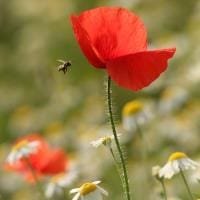(BRUSSELS) – A committee of EU member states’ representatives have backed a proposal for a near-total ban of three bee-killing neonicotinoid insecticides which a scientific review said were harmful to bees.
Neonicotinoids are active substances used in plant protection products to control harmful insects, which means they are insecticides.
The ban will extend a 2013 partial ban of three neonicotinoids – Bayer’s imidacloprid and clothianidin, and Syngenta’s thiamethoxam – to cover all open-field uses, but allows their use in permanent greenhouses.
Representatives from 16 countries meeting in Brussels voted in support of the EU ban. Four countries opposed the ban and eight abstained. The countries supporting the ban were: France, Germany, Spain, Italy, the United Kingdom, the Netherlands, Austria, Sweden, Greece, Portugal, Ireland, Slovenia, Estonia, Cyprus, Luxembourg, Malta, representing 76.1 per cent of the EU population. Those opposing were: Romania, the Czech Republic, Hungary and Denmark. Those abstaining were: Poland, Belgium, Slovakia, Finland, Bulgaria, Croatia, Latvia and Lithuania.
The vote was welcomed by Vytenis Andriukaitis, the EU’s Commissioner for Health and Food Safety: “the Commission had proposed these measures months ago, on the basis of the scientific advice from the European Food Safety Authority. Bee health remains of paramount importance for me since it concerns biodiversity, food production and the environment”.
It was also welcomed by environmental group Greenpeace: “This is great news for pollinators and our wider environment, but there was never any question that these three neonicotinoids had to go,” said its EU food policy adviser Franziska Achterberg. However she warned that the EU needed to make sure that “they are not simply swapped with other harmful chemicals. These three neonicotinoids are just the tip of the iceberg there are many more pesticides out there, including other neonicotinoids, that are just as dangerous for bees and food production. Governments must ban all bee-harming pesticides and finally shift away from toxic chemicals in farming.”
Research indicates that several other insecticides are a threat to bees and other beneficial insects, including four neonicotinoids currently authorised in the EU – acetamiprid, thiacloprid, sulfoxaflor and flupyradifurone – and other insecticides, like cypermethrin, deltamethrin and chlorpyrifos.
Greenpeace warns that failure to address the wider chemical burden on bees could mean that farmers simply replace banned chemicals with other permitted chemicals that may be just as harmful. To avoid this, the EU needed to ban all neonicotinoids, as France is considering, apply the same strict testing standards to all pesticides and dramatically reduce the use of synthetic pesticides and support the transition to ecological methods of pest contro, they said.
The Regulation will now be adopted by the European Commission in the coming weeks and become applicable by the end of the year.


